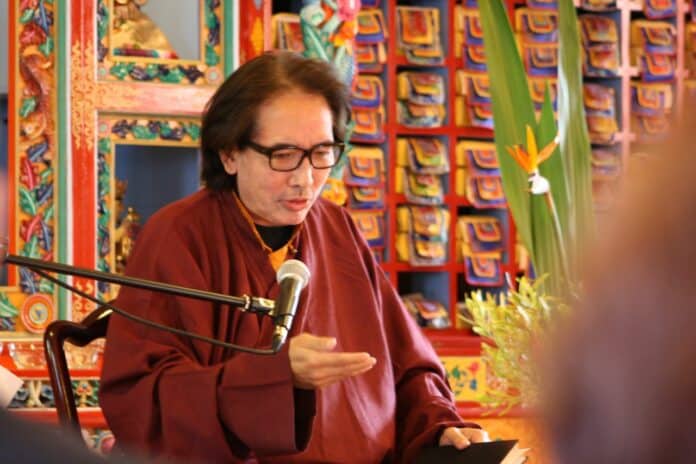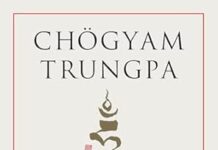
Trungpa Rinpoche also urges us to resist the hoping for credentials as an outcome of our practice. This admonition is another perspective on the Buddhist path that is unique to Trungpa Rinpoche. He called it ‘Buddhadharma without credentials.’ It is an indication of Trungpa Rinpoche’s integrity as a meditation practitioner and teacher that he emphasized the importance of eschewing credentials of any kind as an integral part of the spiritual path. No other teacher, before or after him, has underscored this point with such insistence. Trungpa brings this issue back to meditation practice, explaining that it is the experience of cool boredom that will assist us to overcome this hankering after credentials. He addresses this in The Myth of Freedom:
Boredom is important because boredom is anti-credential. Credentials are entertaining, always bringing you something new, something lively, something fantastic, all kinds of solutions. When you take away the idea of credentials, then there is boredom. -The Myth of Freedom, p. 53.
This seems to be an extremely important attitude, in light of the fact that most of the world’s great spiritual traditions speak of levels of attainment, gradations of consciousness, and so forth. They distinguish between superficiality and depth, ascending or descending and different paths and stages of development. One could therefore be forgiven for wondering, ‘What stage of development have I reached’ ‘What level of meditative concentration have I developed’ ‘How close am I to attaining a particular level of spiritual realization’ While not denouncing the importance or reality of some of these stages of spiritual attainment, this obsession with credentials is an attitude we must relinquish for our own benefit, because it abets rather than aids our spiritual growth. As Trungpa Rinpoche says, the search for credentials is a sickness we have to dissect within our meditation experience, without protecting ourselves from fully experiencing our neuroses. He likens this process to having ‘an operation without an anesthetic’ in The Myth of Freedom:
We begin meditation practice by dealing with thoughts, the fringe of ego. The practice of meditation is an undoing process… So the practitioner who is involved with credentials begins with an operation. Credentials are an illness and you need an operation to remove them… They prove that you are sick so that you can have attention from your friends. We have to operate on this person to eliminate the credential sickness. But if we give this person an anesthetic, he will not realize how much he has to give up. So we should not use anesthetics at all. -The Myth of Freedom, pp. 51-52.
This idea of non-credentials is a significant concept in Trungpa Rinpoche’s thinking. He continually points out that we should never under-estimate the importance of engaging in spiritual practice without the desire for any form of recognition or acknowledgement, because it only reinforces the deluded tendency to define our territory and solidify our existence and prove our worth to ourselves and others. It therefore limits and corrupts any spiritual insight we may attain in ego’s claustrophobic domain. The temptation to pervert our experiences with credentials arises from the fact that ego has no real solidity, as Trungpa Rinpoche accentuates in the following passage from The Myth of Freedom:
In order to cut through the ambition of ego, we must understand how we set up me and my territory, how we use our projections as credentials to prove our existence. The source of the effort to confirm our solidity is an uncertainty as to whether or not we exist. Driven by this uncertainty, we seek to prove our own existence by finding a reference point outside ourselves, something with which to have a relationship, something solid to feel separate from. -The Myth of Freedom, p. 19.
















